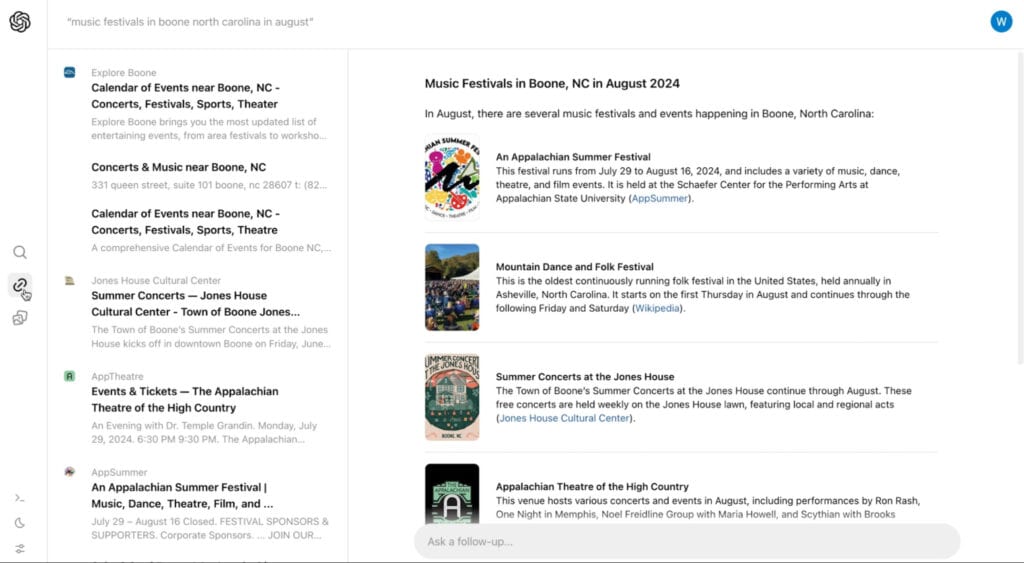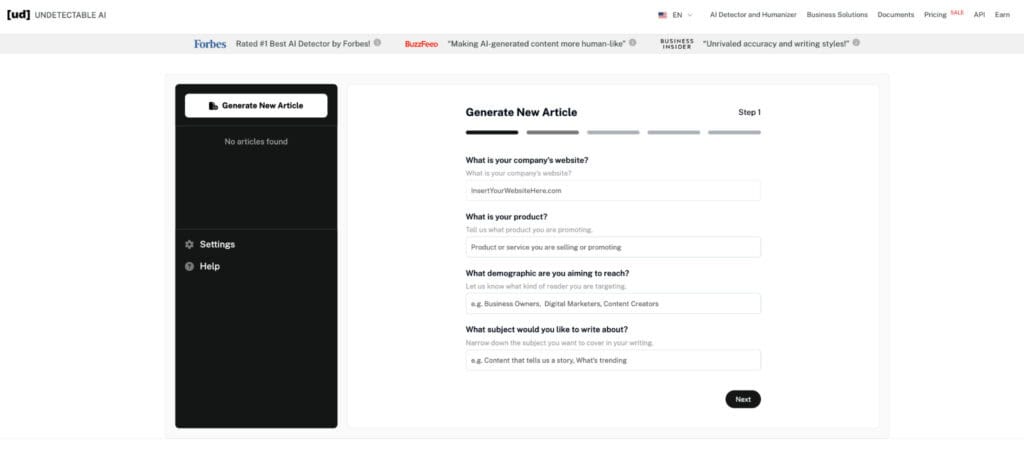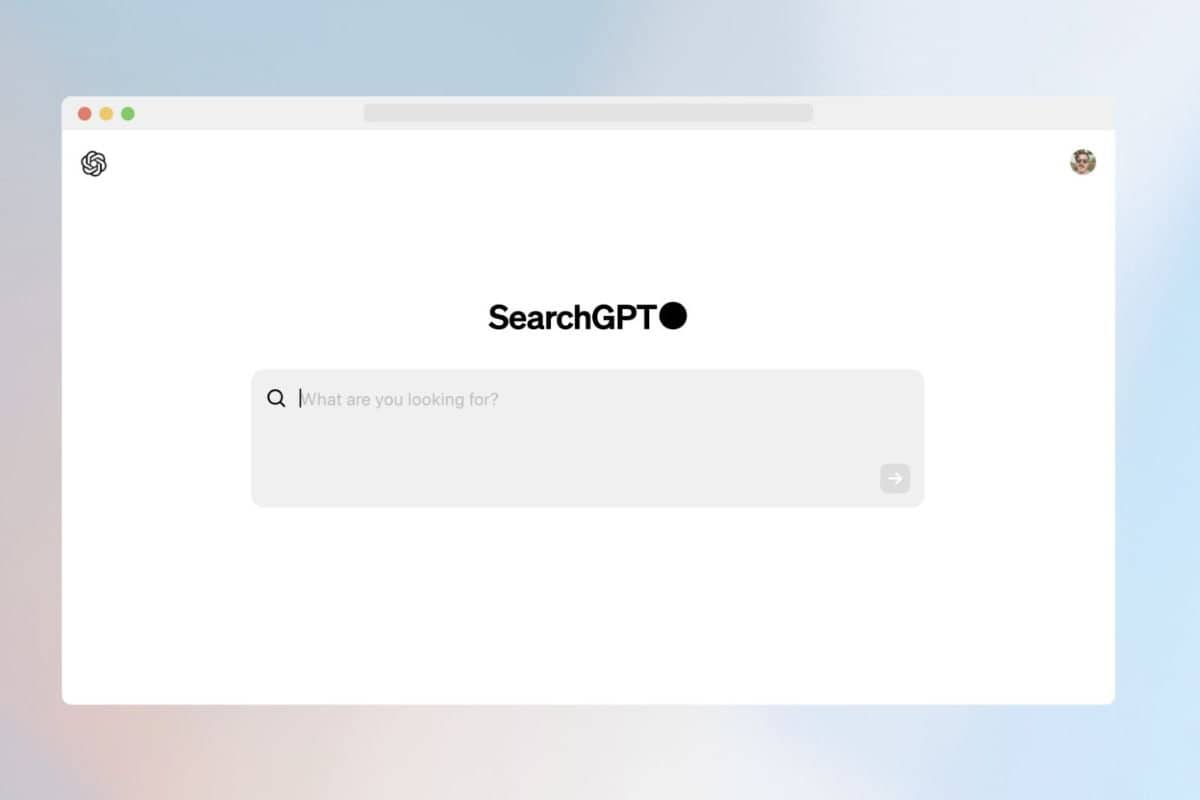On July 25, 2024, OpenAI launched its SearchGPT prototype.
It claims to be the next groundbreaking tool that offers fast and timely answers with clear, relevant sources.
Imagine sitting down to research for your assignment.
You open your go-to search engine—shocker, it’s Google. It makes total sense. This tech giant owns over 91% of the search engine market share, after all.
But now, OpenAI has entered the game with SearchGPT, and it’s here to challenge Google’s reign.
With its robust ChatGPT-powered search, OpenAI might actually redefine how we gather information.
In this guide, let’s answer exactly what is SearchGPT and find out what sets it apart from the competition.
Whether you’re a student looking for credible sources or a professional seeking efficiency with AI, SearchGPT might be what you need.
Let’s break OpenAI SearchGPT down and see how this new player fits into the AI and search engine space.
What Is SearchGPT?

SearchGPT is OpenAI’s innovative step into the world of search engines.
To add some context, GPT stands for Generative Pretrained Transformer, which refers to the foundational large language models (LLMs) developed by OpenAI.
It’s also the technology that runs ChatGPT.


Never Worry About AI Detecting Your Texts Again. Undetectable AI Can Help You:
- Make your AI assisted writing appear human-like.
- Bypass all major AI detection tools with just one click.
- Use AI safely and confidently in school and work.
With SearchGPT, OpenAI blends the power of traditional search engines with the advanced capabilities of its GPT models.
And unlike the previous iterations of ChatGPT, SearchGPT collects real-time data directly from the web.
This integration means that you no longer have to rely solely on traditional search engines for up-to-date information.
Looking for the latest news, sports scores, or stock prices? SearchGPT can do it all.
Trying to find out how to get SearchGPT? SearchGPT is accessible on OpenAI’s desktop and mobile apps.
Currently, it’s available to ChatGPT Plus and Team users, as well as those on the SearchGPT waitlist.
OpenAI plans to roll it out to its Free users in the coming months, expanding its reach to a broader audience.
How Does It Work?
OpenAI hasn’t specified, but, as speculated on Search Engine Land, it’s very likely that SearchGPT uses a method called retrieval-augmented generation (RAG).
This technique is common in AI-powered search engines and helps ensure accurate, contextually relevant responses.
When you type a query, SearchGPT converts it into numerical embeddings—a format that captures the query’s meaning.
These embeddings are then matched against a vector database filled with trusted information.
The data is likely powered by Bing, thanks to OpenAI’s partnership with Microsoft.
From there, SearchGPT retrieves the most relevant content, integrates it into its response, and provides clear source links.
By combining real-time web indexing with GPT’s language processing, SearchGPT can make sure that the answers it gives are precise, up-to-date, and transparent.
How to Use SearchGPT Effectively?
SearchGPT isn’t just another AI chatbot.
It’s specifically designed to transform the way we search, offering concise, real-time answers enriched by AI.
To get the most out of it, here are some tips:
- Use Clear, Specific Queries: Just like giving the right AI prompts, be direct with your questions with SearchGPT to receive precise answers. For instance, instead of asking, “Tell me about today’s weather,” try, “What’s the weather forecast for Los Angeles today?”
- Leverage Follow-Up Questions: SearchGPT can maintain the context of your queries. If you don’t understand an answer or need more detail, ask follow-up questions without having to start over.
- Verify Sources: Use the “Sources” sidebar to review the links SearchGPT provides. This maintains transparency and lets you dig deeper into the topic if you need to.
- Multimedia for Content Creation: When optimizing your content, you can easily use SearchGPT to provide you with text, images, and videos.
Using SearchGPT effectively means engaging with its strengths: real-time answers, conversational context, and transparent sourcing.
The more you tailor your approach, the more value you’ll get the most of it.
How SearchGPT Differs from Traditional Search Engines

The traditional search engine, like Microsoft Bing, functions as a powerful index that organizes and points users to various information across the web.
These engines rely on algorithms to match queries with relevant web pages, displaying a list of links for users to explore further.
To some, this method of searching online is getting outdated.
SearchGPT is offering a fresh approach to online search, setting itself apart from the competition.
Here’s how:
Direct Answers vs. Links
The usual search engines we use, like Google, only function like directories.
What they’d do is point you to the sources of information.
The thing is, these don’t always provide direct answers. Google’s AI Overviews, for instance, aims to change this but still rely heavily on links.
SearchGPT, however, focuses on giving clear, summarized answers directly in the chat while linking back to the source for you to verify right away.
Follow-Up Questions
With the traditional way we search, each query is considered an individual search.
What’s entirely unique about SearchGPT is that it can keep the context of your previous questions.
This enables it to hold a conversation.
This way, users can refine their understanding of what they’re looking for by building on previous answers, making the search experience more dynamic and intuitive.
Real-Time Data Integration
Unlike the older models with knowledge cutoffs, SearchGPT pulls real-time data from the web.
So, whether you need it for research or just to check the weather, SearchGPT delivers.
Powered by a fine-tuned version of GPT-4, SearchGPT combines web indexing with input from trusted partners to provide accurate and timely responses.
SEO and Content Creation in the Age of SearchGPT
With SearchGPT entering the search engine market, SEO strategies also need to evolve.
Nowadays, with the rise of AI platforms, digital marketers can no longer just focus solely on Google.
Content creators and businesses need to optimize for AI-driven tools as well.
Impact on SEO Strategies
To stay competitive, it’s crucial for you to adapt your SEO strategies to align with how AI interprets and prioritizes content.
You’ll see that it’s a mix of adapting to new ones and refining the time-tested ones.
Here are a few things to keep in mind:
- Learn How Language Models Work: It’s important to know how AI interprets language so you can optimize your content. Search engines will be more inclined to accept your content because they’ll see it as authoritative.
- Produce Quality Content: Track trends and incorporate relevant keywords to align with user needs. Answer common questions to increase your chances of being referenced by AI-driven searches.
- Get Reviews and Mentions: Encourage your users to give reviews and social media comments. AI tools tend to prioritize content with positive engagement and high-quality mentions.
- Maintain SEO Best Practices: Continue using tried-and-true SEO strategies, such as optimizing page speed, using structured data, and optimizing for mobile compatibility. These practices remain essential for visibility on all platforms.
Don’t be afraid to embrace this shift.
Tools like SearchGPT offer exciting new opportunities for search and content creation.
Adapting your strategies to meet these changes is key to staying relevant, visible, and successful online.
How AI Tools Can Help with Content Creation

AI has revolutionized content creation by making the process faster, more efficient, and accessible to a broader audience.
This potential allows creators to focus on refining their ideas instead of starting from scratch.
However, while tools like SearchGPT and other popular search engines provide valuable insights, their content isn’t necessarily optimized for visibility.
To bridge this gap, the Undetectable AI SEO Writer can be your reliable solution.
Undetectable helps you craft text that performs well on traditional search engines, as well as AI-powered platforms like SearchGPT.
You can also explore our AI Humanizer and Detector in the widget below!
SEO remains a critical element in content creation, and with Undetectable, you can create high-quality, optimized text more efficiently.
Our free AI SEO Writer simplifies the balance between creativity and strategy, making content creation more seamless than ever.
Frequently Asked Questions About SearchGPT
How to access SearchGPT?
You can access SearchGPT through OpenAI’s website, its desktop app, or the mobile app.
It’s currently available for Plus and Team users, with plans to expand to Free users in the coming months.
How does SearchGPT differ from ChatGPT?
SearchGPT is designed for real-time search, pulling live data from the web, while ChatGPT relies on pre-trained knowledge up to its last update or cutoff.
Can I trust the sources provided by SearchGPT?
Yes, SearchGPT includes source links for transparency.
This allows you to verify the information and explore it further.
Will using SearchGPT affect my website traffic?
Yes, as SearchGPT provides direct answers rather than providing links.
Remember that users will have to click a separate section to check the sources and open external websites.
However, keeping your content optimized for AI can help maintain visibility.
Conclusion
SearchGPT is redefining how we gather and use information, blending the capabilities of AI with real-time search potential.
This unique approach to delivering precise answers and maintaining a conversational context sets it apart from traditional search engines.
For content creators and businesses alike, adapting to this shift is a crucial step for success.
With tools like Undetectable AI, you can streamline content creation even further, ensuring that your work is both optimized and impactful.
Embracing advancements allows you to stay ahead and make the most of a more AI-driven future.
